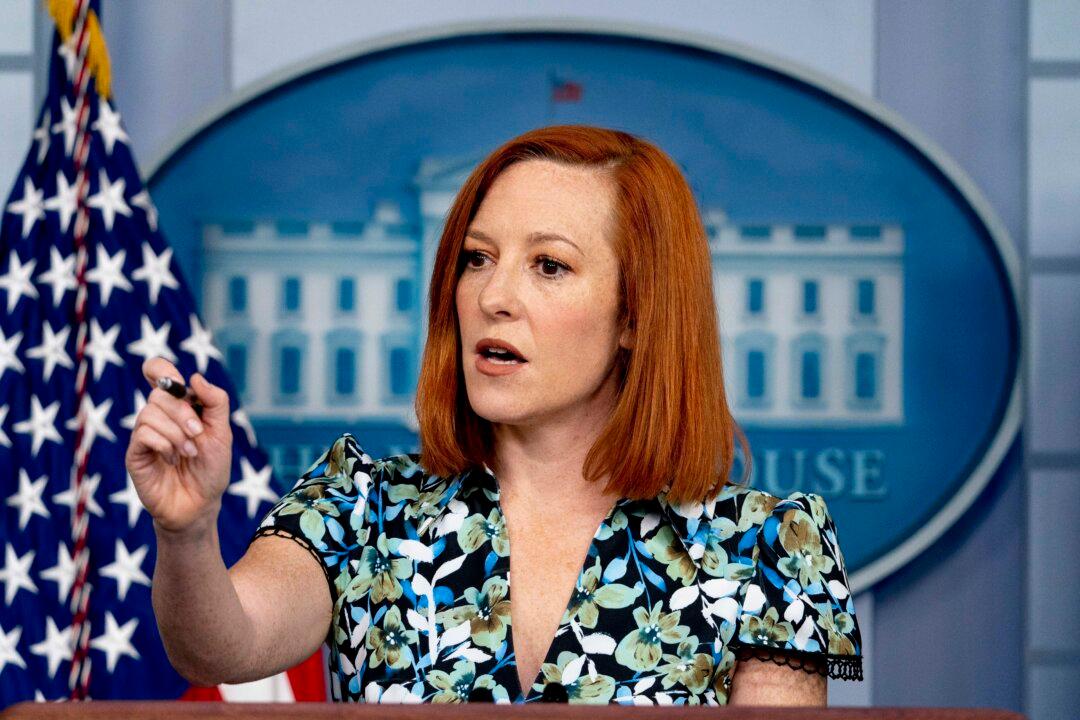White House press secretary Jen Psaki said on July 22 that the Chinese Communist Party’s (CCP) recent move to reject a second investigation into the origins of COVID-19 is “dangerous” and called on the regime to allow investigators inside the country without any interference.
The World Health Organization (WHO) presented a plan days ago to audit laboratories and wet markets in Wuhan, where the CCP virus is believed to have originated in late 2019. That would include obtaining raw data about the beginning of the pandemic from China that the regime hasn’t yet shared with outside officials, according to WHO chief Tedros Adhanom Ghebreyesus.





